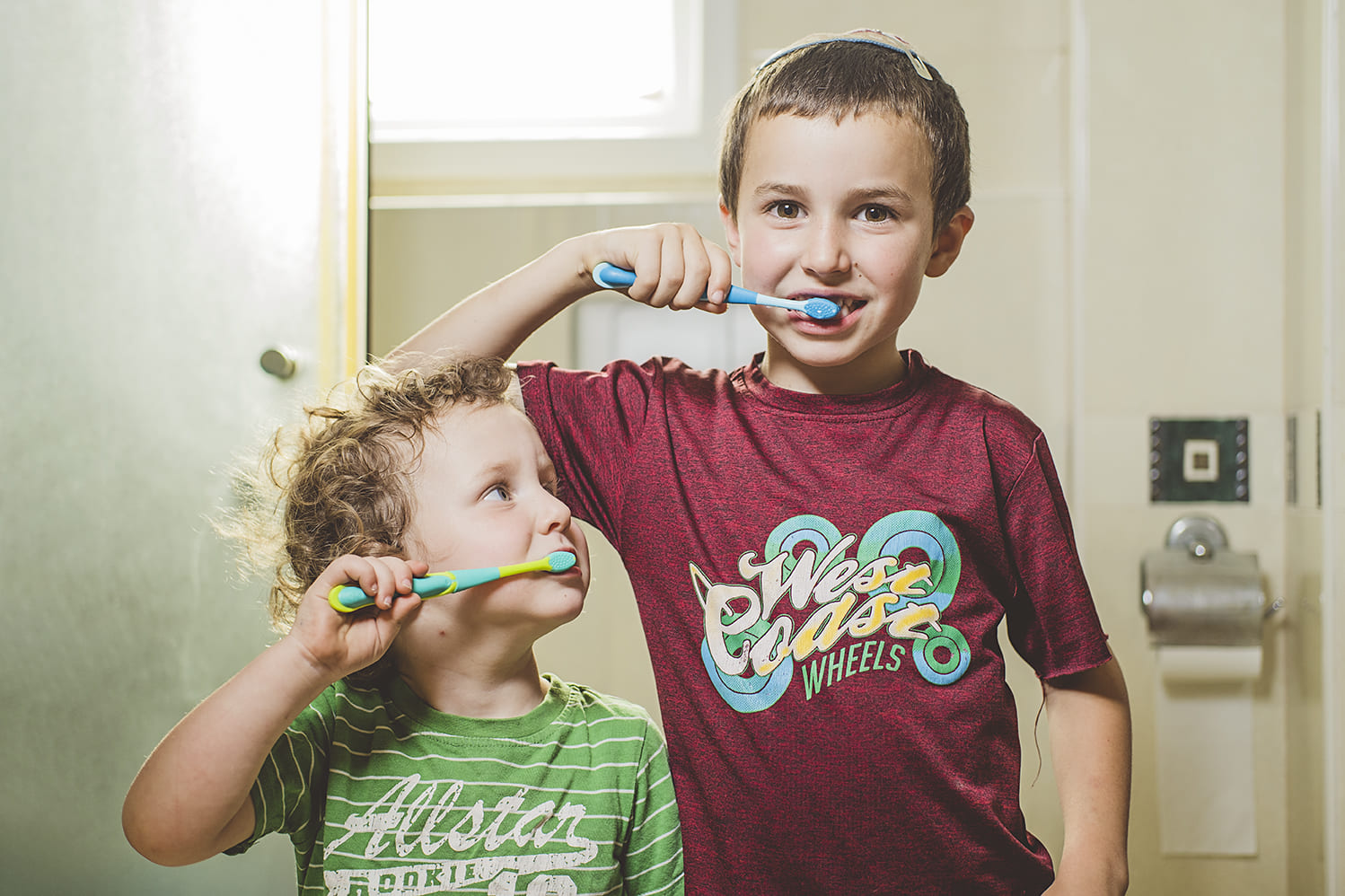Safeguarding Oral Wellness
Dental health is critical to the normal growth and development of children as well as to their ability to eat, speak and sleep well. It also contributes to their self-confidence and self-esteem.
Although the baby teeth fall out, around the age of 6, their care is extremely important. With these teeth, toddlers bite and chew food. The teeth also help toddlers speak correctly, contribute to the external appearance, save the space for the permanent teeth in the correct position. Proper care and maintenance of oral and dental health of children from an early age is important to their health, both now and in the future.
Risk factors for dental and periodontal diseases
There are several main factors behind the development of dental and periodontal diseases in children:
- Dental caries: bacteria that is regularly found in the mouth and that bind to gums and teeth. If not removed by brushing, it accumulates on the teeth as a sticky clear layer known as plaque. Plaque transforms sugars found in beverages and food that children eat into acid, causing teeth to lose minerals and resulting in the onset of dental caries (cavities). This process destroys teeth in toddlers and children.
- Gingivitis: another possible disease in children is gingivitis, which is largely caused by failure to maintain oral hygiene.
- Various background illnesses and weak immune system: these conditions may cause the development of oral and dental diseases.
Although reality cannot always be changed, awareness of the risks will help you better protect children’s teeth and gums.
Brushing from the appearance of the first tooth
Congratulations! The baby has his first tooth. Once the first tooth appears, cleaning and brushing the tooth every day, as well as wiping the gum area where teeth have not yet come in, is important. During the first stage, the teeth and gums can be cleaned with a clean, damp gauze. Once other tooth appear – use a toothbrush with a small head and soft bristles that are suitable for toddlers.
Three rules you should know about brushing teeth
Fluoride
As a rule, teeth should be brushed twice a day, in the morning and before bed, with toothpaste that contains the right amount of fluoride for the child's age.
Brushing thoroughly
Bruch all parts of the tooth and tongue every time you brush teeth.
Toothbrush
Replace the toothbrush every 3 months, or when it is worn.
Important: only children aged 8 and older have developed good skills to brush their teeth on their own. Any child under the age of 8 should brush their teeth with supervision and assistance.
Proper use of toothpaste
Toothpaste containing fluoride must be used in quantities suitable for the age. For infants and toddlers, there is no need to wash the toothpaste (the quantity is extremely small for this age). For older children, however, the quantity of toothpaste increases and children should be encouraged to spit it out and to avoid washing the mouth afterwards to increase the effect of fluoride on the teeth.
The recommended amount of toothpaste for use by age is:
- From the appearance of the first tooth and until the age of two: use a tiny amount (the size of a grain of rice) of toothpaste at a concentration of 1000 particles per million (ppm) of fluoride (this information appears on the carton of toothpaste).
- Between the ages of two and six years: it is important to increase the quantity of toothpaste to the size of a pea and encourage the child to spit out the toothpaste once they finish brushing.
- Age 6 and older: use toothpaste with a fluoride concentration of 1,450-1,500 ppm, in amounts larger than a pea.
Note
Note
When you arrive at the dentist for a visit, you may receive personal recommendations about the toothpaste concentration, depending on the level of risk of tooth decay.
Tests and dental care
The dentist monitors normal tooth development, examines the health of the teeth and mouth while also making sure there are no signs of tooth decay. The first visit largely involves an examination and is designed to create a positive experience for the child that will make future visits to the dentist easier. It is important to arrive at the clinic for periodic examinations to monitor tooth development, to detect early signs of tooth decay and for treatment if necessary.
Several things you should now about the visit to the dentist
-
When should you go to the dentist?
A visit to the dentist should be made within one year from the appearance of the tooth, after which, regular visits as recommended by the dentist are important.
-
What are your child's dental entitlements?
Children under the age of 18 are entitled to preventative dental care (free of charge) and maintenance care (with a deductible) through the HMO. For clarifications and to receive service, contact the insuring HMO.

















